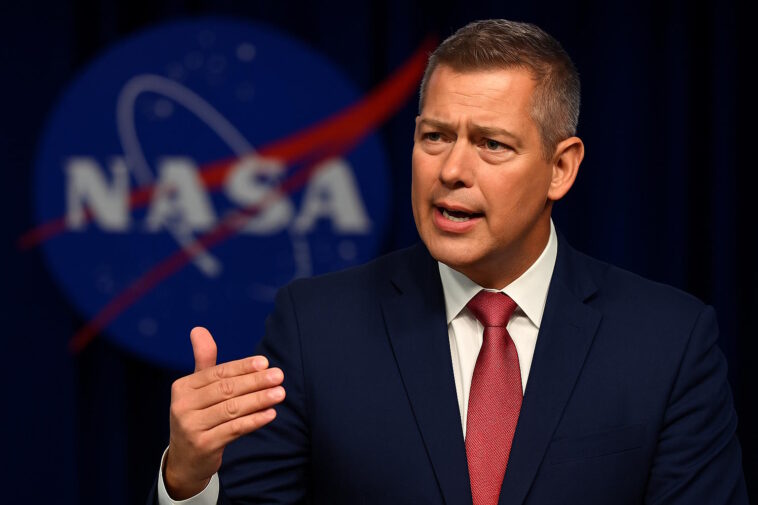On July 10, 2025, news broke that shook the scientific and political spheres alike—Sean Duffy, former Congressman and Fox News contributor, has been appointed by former President Donald Trump as the Interim Head of NASA. The search volume for his name spiked by over 700%, trending nationally on Google, and not without reason. While the move is controversial, it has captured the attention of everyone from political analysts to astronauts, and space geeks like myself.
Who Is Sean Duffy?
Let’s get this out of the way—Sean Duffy isn’t your typical rocket scientist.
A former reality TV star (yes, from MTV’s The Real World: Boston), he later became a Congressman from Wisconsin, serving from 2011 to 2019. Since stepping down from politics to focus on family, he’s carved out a niche as a political commentator on Fox News, regularly offering takes that blend Midwestern grit with conservative ideals.
But heading NASA? Now that’s something nobody saw coming.
A Political Appointment in an Engineering Arena
NASA has traditionally been helmed by individuals with extensive science, aerospace, or military experience. Think: Bill Nelson, Charles Bolden, and Jim Bridenstine—men who understood the ins and outs of physics, propulsion systems, or at least had ties to aerospace policy.
Sean Duffy’s appointment has raised eyebrows not because he’s unintelligent—he’s a polished speaker and a seasoned lawmaker—but because his resume doesn’t scream “space exploration.”
The Political Game: Reclaiming Legacy
According to insiders, Trump’s move to appoint Duffy is more strategic than scientific. This might be a calculated play to:
- Rebrand the space agenda around American exceptionalism.
- Push economic arguments for space privatization.
- Strengthen influence over tech and aerospace firms during the election build-up.
From a political lens, it’s a smart headline. But from a scientific and operational standpoint? That’s where opinions divide.
What This Means for NASA Projects
As of now, NASA is working on several high-profile missions:
- Artemis II and III – Aiming to put humans back on the Moon by 2026.
- Europa Clipper – Set to explore one of Jupiter’s icy moons for signs of life.
- Ongoing partnerships with SpaceX, Blue Origin, and Axiom Space to drive ISS replacement and deep space exploration.
Duffy stepping in could either mean:
- A short-term placeholder role while a more traditional candidate is vetted.
- Or, a serious political insertion into NASA’s executive function with long-term consequences.
What Experts Are Saying
On social media, opinions are split. Former NASA engineers and science communicators are calling for “experienced leadership,” while conservative pundits celebrate Duffy’s patriotism and leadership background.
“Putting a Fox anchor in charge of NASA is like asking a cowboy to code in Python.” — Reddit user
Still, some argue that administrative leadership doesn’t require a PhD in astrophysics—it requires vision, discipline, and the right advisors. If Duffy surrounds himself with top-tier experts, there may be room for optimism.
My Take as a Space Nerd
Honestly? I’m concerned.
NASA’s legacy isn’t just about flying big rockets—it’s about pioneering science that pushes humanity forward. From Mars rovers to the James Webb Space Telescope, every breakthrough was born from decades of study, not political theater.
Duffy’s strength might lie in budget negotiation and public outreach, which could bring fresh attention (and funding) to the agency. But without deep science familiarity, I worry decisions might be skewed more by politics than data.
What’s Next?
Duffy has yet to lay out a formal roadmap, but he’s expected to make a public address within days. Until then, all eyes are on his first major moves—whether it’s greenlighting missions, restructuring partnerships, or outlining a new vision for NASA under Trump’s influence.
If nothing else, this move has reignited public interest in NASA—and that’s never a bad thing.
One Small Step… Into Controversy.
Whether Sean Duffy lifts NASA to new heights or not, this appointment has already launched a nationwide debate about who should lead our final frontier. As always, we’ll be watching the skies—and the headlines.



